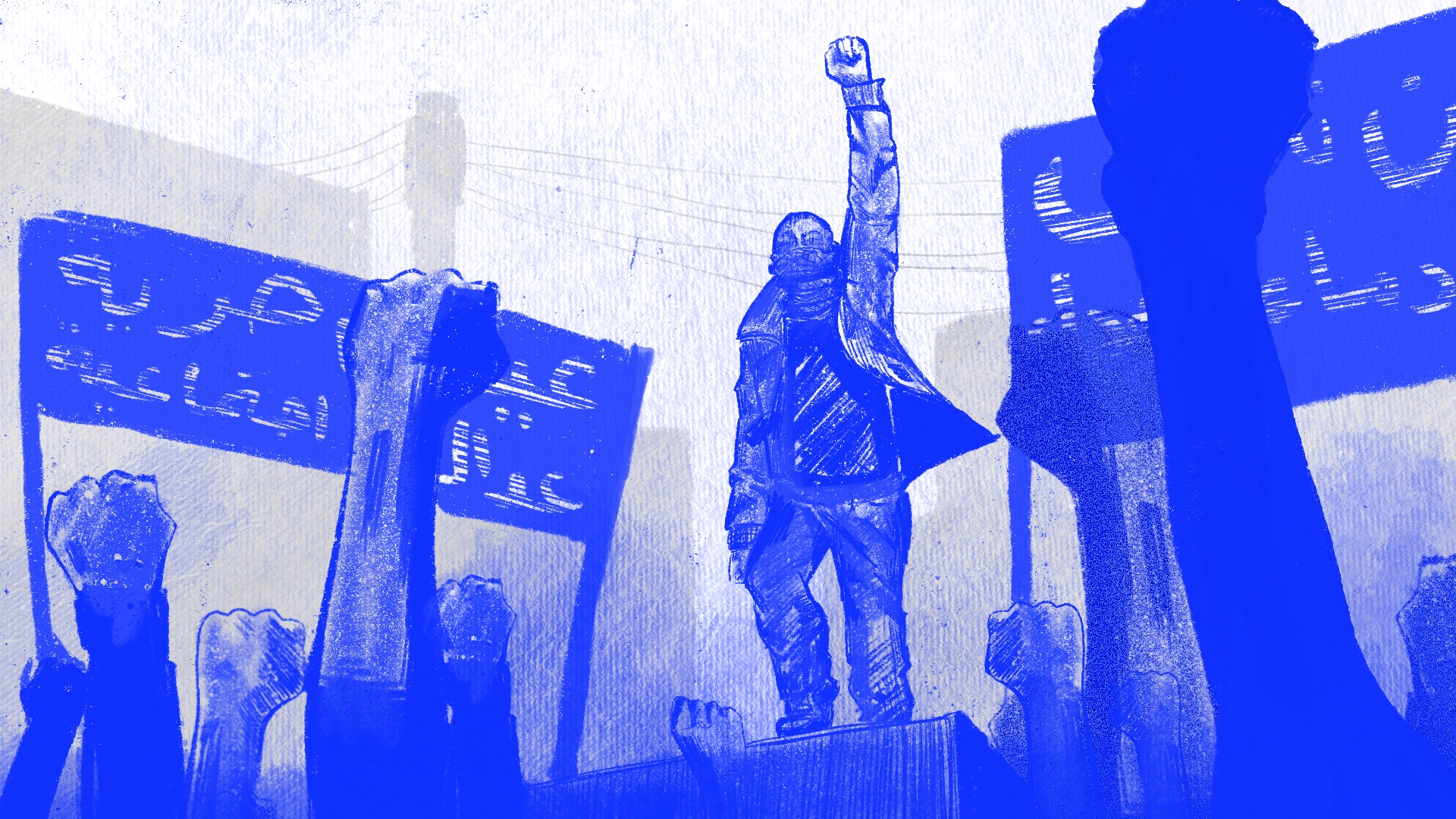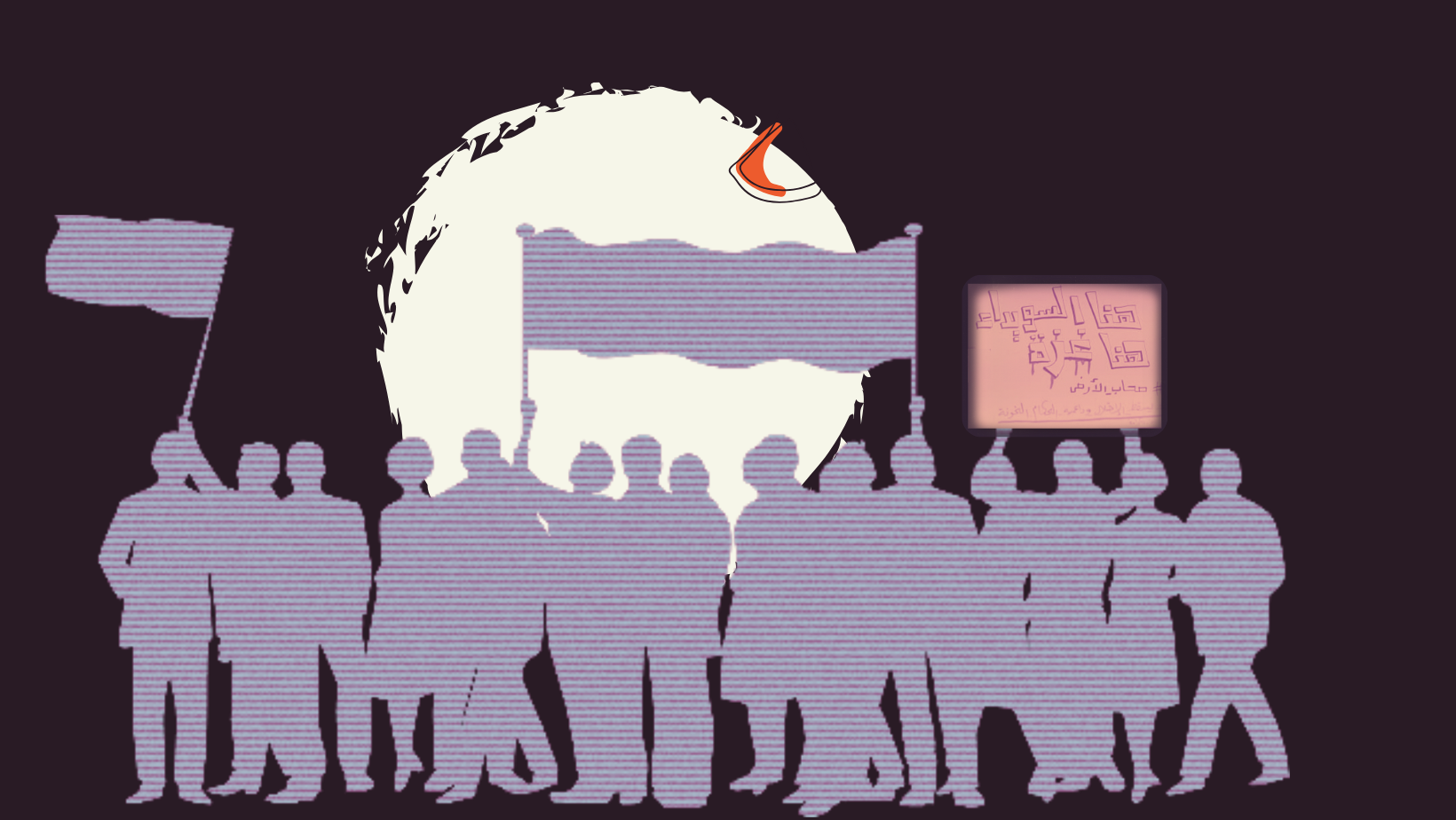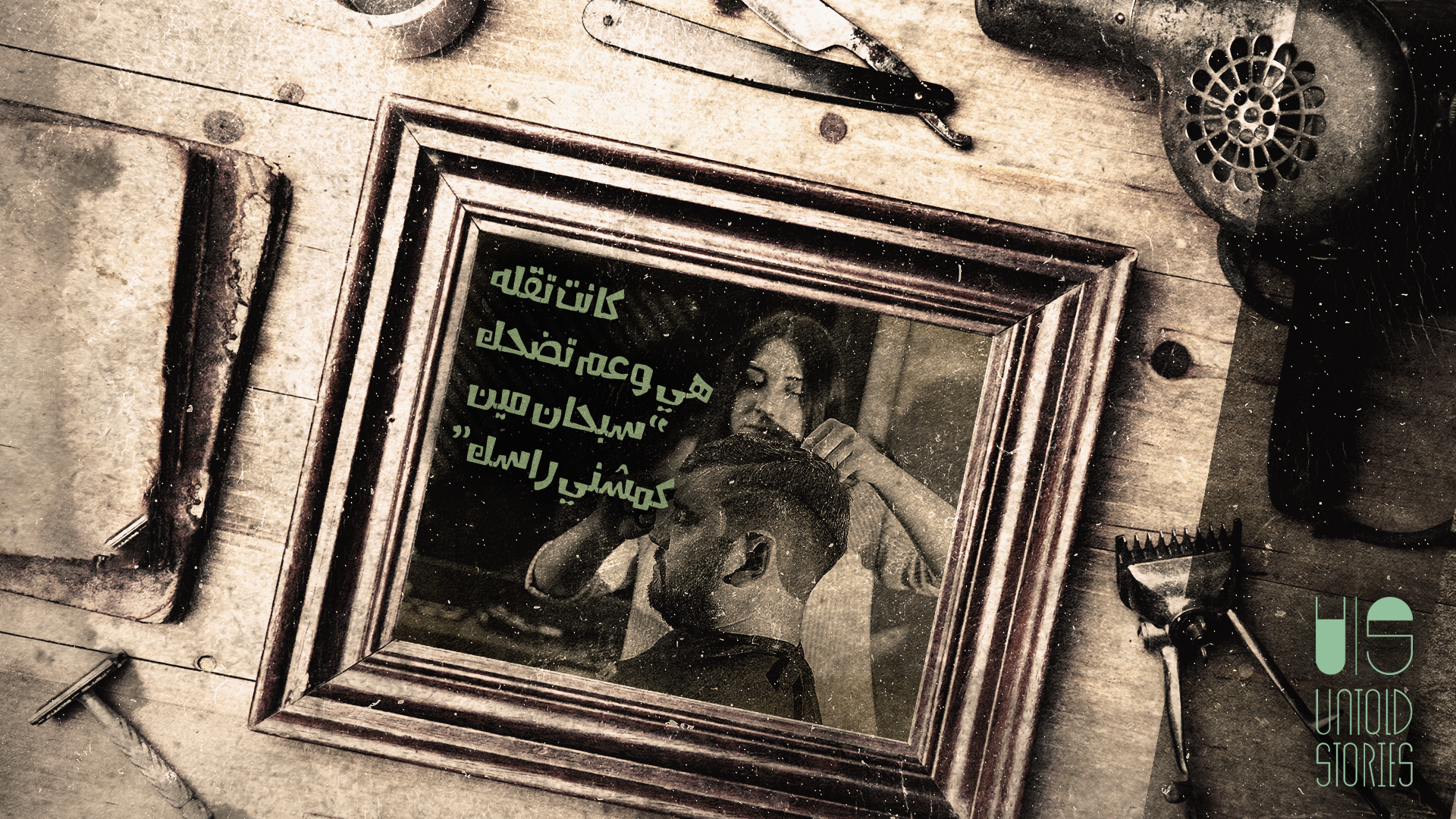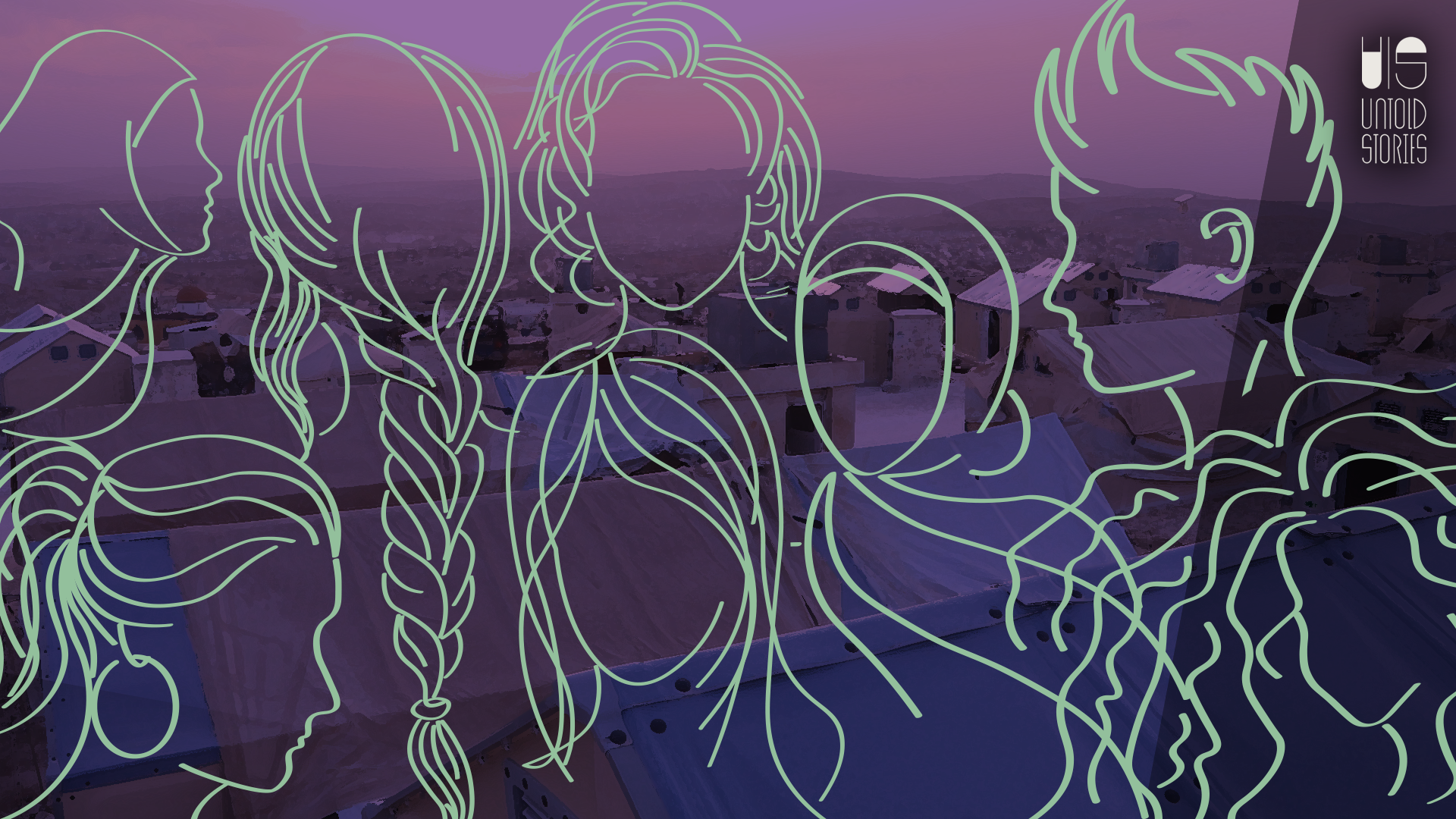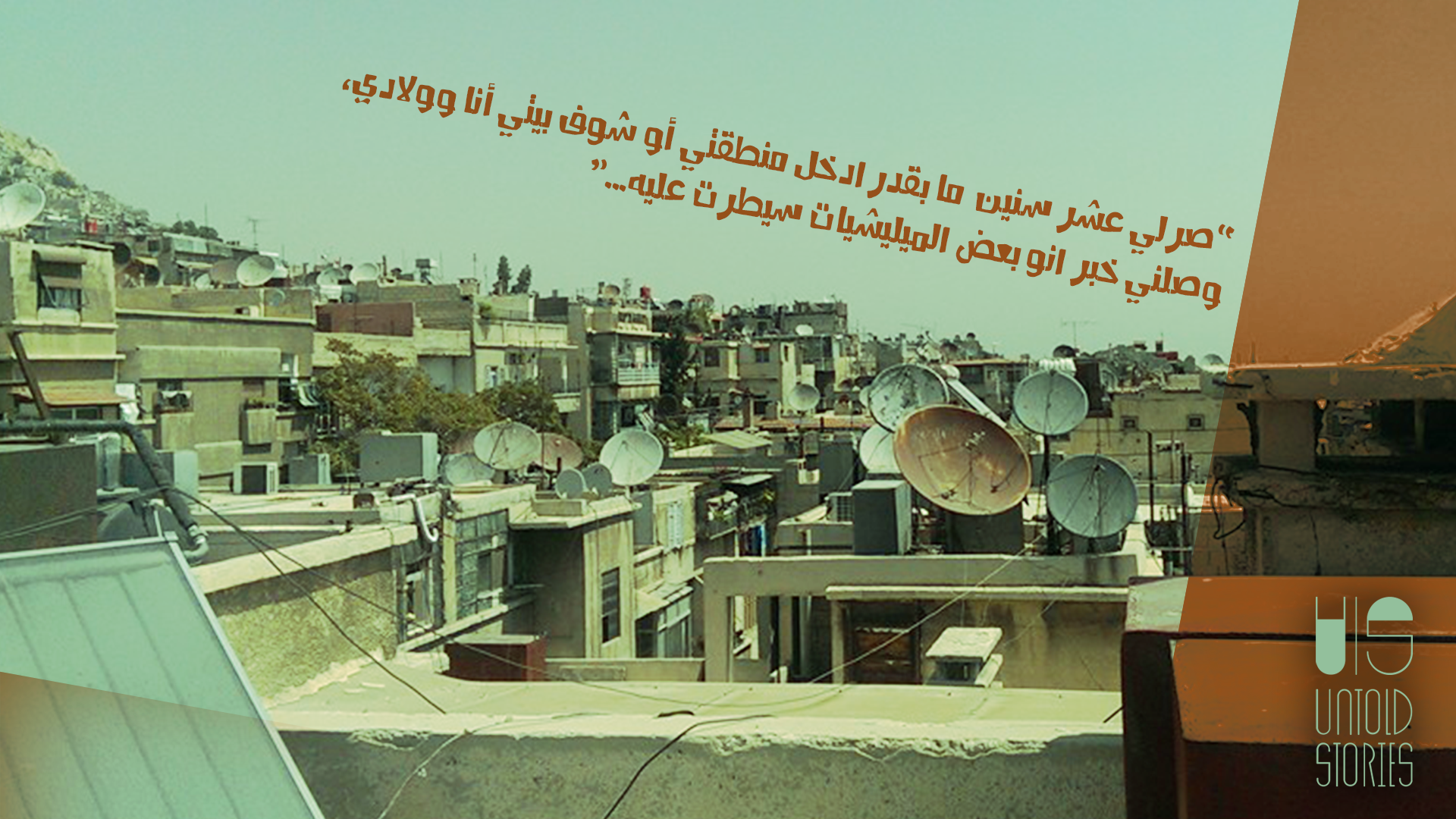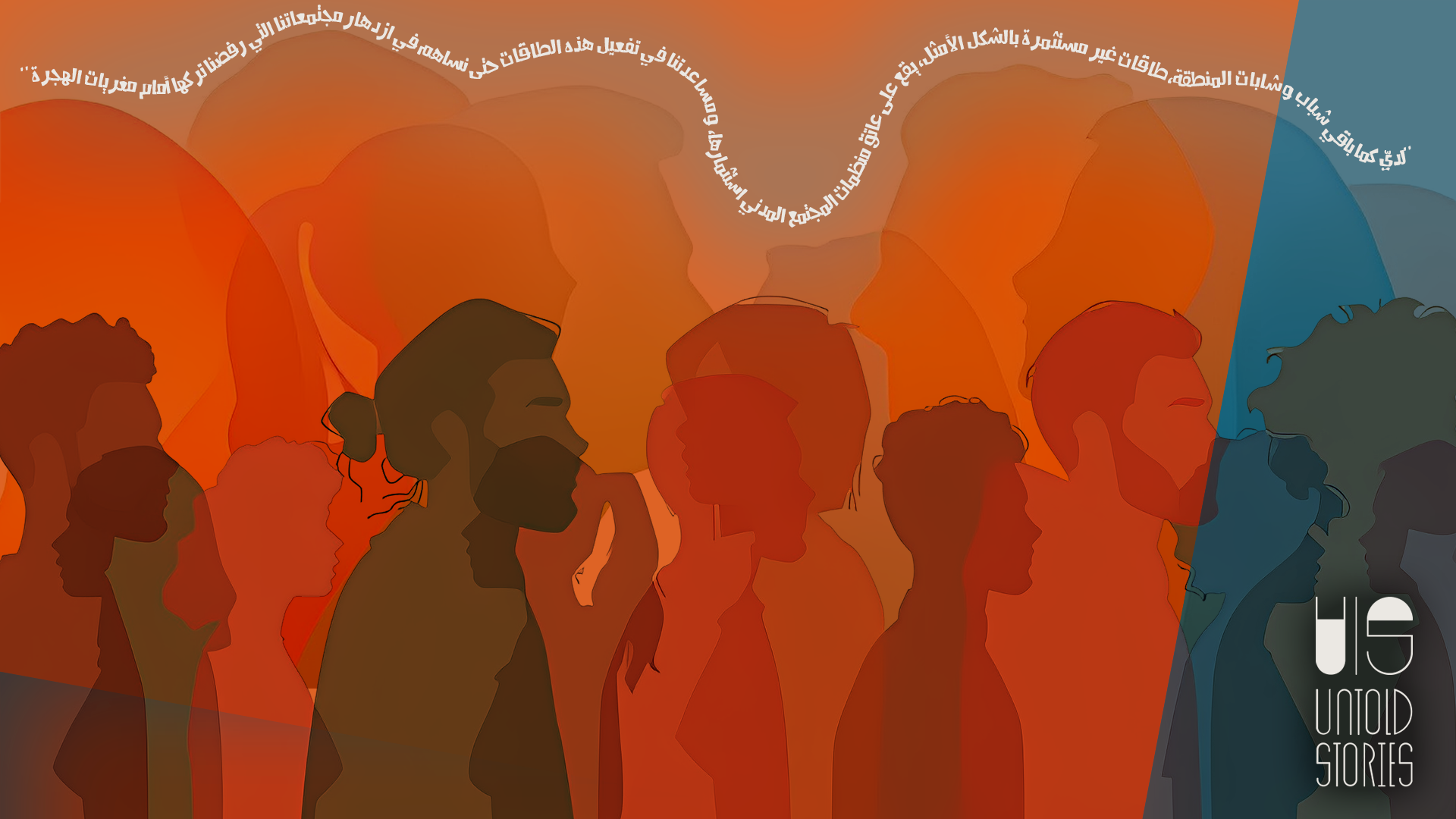“This article was produced within the project «Empowering the Next Generation of Syrian Women Journalists» in partnership between the «Syrian Female Journalists Network» and «UntoldStories». This article was produced under the supervision of journalist Alaa Mohammed.”
“Living in camps involves specific rules imposed by the surrounding social environment, controlling every detail in women’s lives, without being able to object or change anything,” says Mrs. Alia, a displaced woman from the city of Ltamenah in the northern Hama countryside, to the Aqrabat area, north of Idlib.
The 30-year-old woman adds that living in random, cramped, and closely situated tents has robbed her of any sense of privacy in her family life. She mentions that she can hear her neighbors' conversations very clearly, “as if they were in a shared home.” With a laugh, she tells us from her tent that she and her husband often find themselves unintentionally involved in resolving her neighbors' problems because they inadvertently learn about their daily issues, due to the nature of life here. “I don't feel like a free and an independent woman at home, or like I'm ever truly away from the watchful eyes of others,” Alia concludes.
Sahel Protests. Repression Prevail
08 December 2023
Thousands of women in the camps experienced this situation, sometimes without being able to express how they feel about it. While some have adjusted to this way of life, others harbor dreams of improving their circumstances and returning to their previous homes.
Not far from Alia lives Mrs. Faten, a 33-year-old widow and mother of four children, the youngest of whom is five years old. She said in a calm tone, while sipping a cup of tea inside her tent, that she only got “one small tent that could barely accommodate her children.” This situation has compelled her to utilize a narrow area outside her tent, turning it into a kitchen. She shared with us that her heart aches for her home in the rural outskirts of Damascus, where the kitchen space she left behind is significantly larger than the tent she now resides in. Consequently, she is obligated to cook and work within this narrow, exposed space, enduring the winter rains and summer heat.
Faten spends most of her time in the small outdoor space outside her tent, where she fashioned a clay stove to prepare meals for her children, and heated bathwater. She shares with a smile that her daily activities, including cooking, her children's bath time, and dishwashing, unfold in this compact area, making her routines known to most camp residents. Concluding with tears preceding her words, she says: “There is no privacy for single women like me, and there is no breadwinner for them to change this situation, even in their kitchens, and when they go to the bathroom.”
Suad Al-Ali, a psychological and social support worker at a humanitarian organization in northwestern Syria, shares that during her work to raise awareness against violence, she encountered numerous instances where women grappled with psychological challenges stemming from the intense psychological pressure of camp life. “This is the most difficult degree of violence practised against women in the region.”
She elaborates more: “the absence of privacy in the camps, coupled with the constrained living spaces, and the women's pervasive sense of insecurity, instability, and discomfort. This, along with their fear regarding the potential spread of diseases and epidemics due to the communal bathroom facilities and their inadequate hygiene, has become a source of concern for the majority of women in the camp.”
Customs and traditions that govern women
In the middle of Al-Wefaq camp in the city of Killi in the northern countryside of Idlib, the 40-year-old woman, Umm Mansour, lives after her displacement from the village of Al-Lataminah, located in the Hama countryside. She states that since her displacement, she has not experienced the essence of safety and stability. The harsh realities of life manifest in her words and the tone of her voice as she gestures to her cracked hands affected by cold water. “Living in a tent means dying slowly before your time. Life here is devoid of the taste of peace and comfort, and privacy was lost when we departed from our homes years ago.”
Thousands of women in the camps experienced this situation, sometimes without being able to express how they feel about it.
Based on our conversations with several women we met, the prevailing customs and traditions in northern Syria have a negative impact on their lives, leading to problems within their families and the broader community. Umm Ammar, a 40-year-old mother of six residing in the Al-Maqbara camp in the city of Ma'arrat Misrin, highlights that “certain religious and societal norms dictate aspects like how we dress and our social interactions. The majority of women in northern Syria wear the hijab, while some wear veils because of religious obligations.”
The impact is harder for displaced women residing in camps amidst a place filled with closely placed tents, with only a few meters between each, or in homes covered with insulated panels of corrugated tin or fabric insulation provided as relief aid. According to the journalist and feminist researcher Rola Assad, “most of the camps lack suitable housing that preserves human dignity, thereby increasing the risks associated with gender-based violence and sexual violence faced by women, girls, and young boys.” As Assad emphasizes the necessity of comprehensive policies that take into account the needs of women and approach them from a social justice perspective, she hopes that “in the long term, governments and organizations will have policies that consider the needs of women and girls.”
In a small tent no larger than a few meters in one of the camps in the town of Qah in northern Idlib, Wafaa Muhammad lives with two girls and three boys. While cleaning dishes near her tent, she shares her struggles of living in camps since she fled Eastern Ghouta, Damascus, six years ago. She discusses the difficulty of using shared bathrooms, where her children felt a great deal of fear when going there at night amid the dark surroundings. This issue was resolved when she designed a private bathroom inside her tent, despite the limited space. She states, “I used to feel embarrassed and afraid when going to the bathroom, or accompanying my children when they needed to go.”
Solutions available for men and prohibited for women
“Lower your voice so that no one hears it, mind your hijab, your ankles are visible, wear long clothes in case someone visits us.” These are daily phrases that Arwa,25, has to endure. She lives in one of the camps in the city of Atme in the northern countryside of Idlib. She says that her husband is afraid of what people might say, and he always says these phrases with a stern tone, telling her “don't make people talk badly about me.” He justifies this by expressing concern for her, claiming that she is not the only one who lacks freedom in her own home. “There are thousands of women like you all over the camp,” he says.
According to statistics by the “Syria Response Coordinators” team, the number of displaced people reached approximately 2.1 million individuals, out of more than four million Syrians, 1.43 million Syrians, 1.43 thousand and 869 of whom reside in camps, distributed among 1,293 camps, including 282 random camps established in Agricultural Land.
From Sweida to Gaza... One Uprising
27 November 2023
Samar Al-Muhammad, a 33-year-old resident of the airport camp in the city of Harem, says: “some husbands seem oblivious to the challenges women face, whether in the heat of summer or the chill of winter.” She shares that in the summer, her husband often joins his friends at the pool, enjoying their time together. Meanwhile, she has to endure high temperatures, unable to open her door for a breath of air because the tents are too close together and exposed to the street.
These customs and traditions not only govern women in the camp, but even young girls and adolescents are prohibited from engaging in certain activities, whether it is taking a walk or going to the pool. Amer Al-Jawad, 7-year-old, residing in Al-Jubb camp near the city of Kafr Yehmol, says: “I have a small plastic swimming pool; I take my boys out of the tent and fill it with water so they can play and swim. However, I cannot allow my daughters to do the same.” He adds that the customs of his family do not permit girls, even if they are young, to swim or play far from their residence.
One heater... Cold is women's fortune
Due to these societal norms, winter hardships are intensified. Mrs. Widad, a 30-year-old resident of Al-Hamra camp in the city of Killi, north of Idlib, highlights her challenge of only being able to use a single heater in the tent. Consequently, whenever there is a guest among her husband's friends and acquaintances, it results in her and her daughters enduring hours without heating.
She says she has suffered from this a lot, just like the rest of the women in her camp, where “men spend their time outside their homes chatting with their friends for a long time by the heaters, and we women pay the price.” According to Widad, these daily details turned her into a quick-tempered and nervous woman due to the pressures she had to endure, causing major family problems that almost led to divorce.
According to Asima Morsheed, a psychological specialist working with the Peace Therapist platform for psychological support “women face psychological problems due to daily oppression, which can lead to them suffering from depression.” This is what she observed during her work with women in camps. As Morsheed pointed out, the main issue faced by the woman is falling into the cycle of violence, which involves being violent towards her children. This stems from her inability to manage stress in a healthy manner, leading to various manifestations such as “physical illnesses, psychological disorders, or expressing frustration through negative ways like fighting with her husband, physically harming her children, and neglecting their care.” Salma Mohammed, 35, residing in Al-Barakat camp in the city of Killi in northern Idlib, talks about women who suffer because their husbands or brothers control their day-to-day lives, “according to social customs, religious constraints, regarding aspects such as their attire, ability to leave the tent, work, or visit neighbors.”
While sitting on a chair in front of the tent with some women in the camp, she says: “women are constrained by difficult circumstances, and life in camps has only increased the restrictions on them, whether inside or outside the tent, it makes no difference. These women represent the situation of many displaced ladies in northern Syria.”


